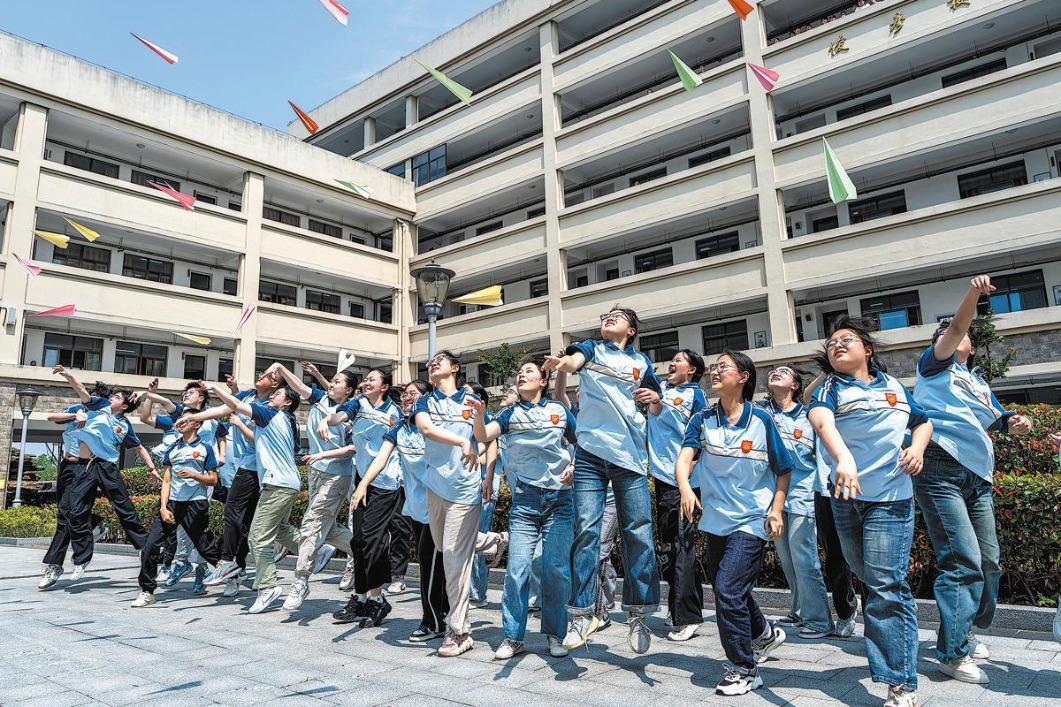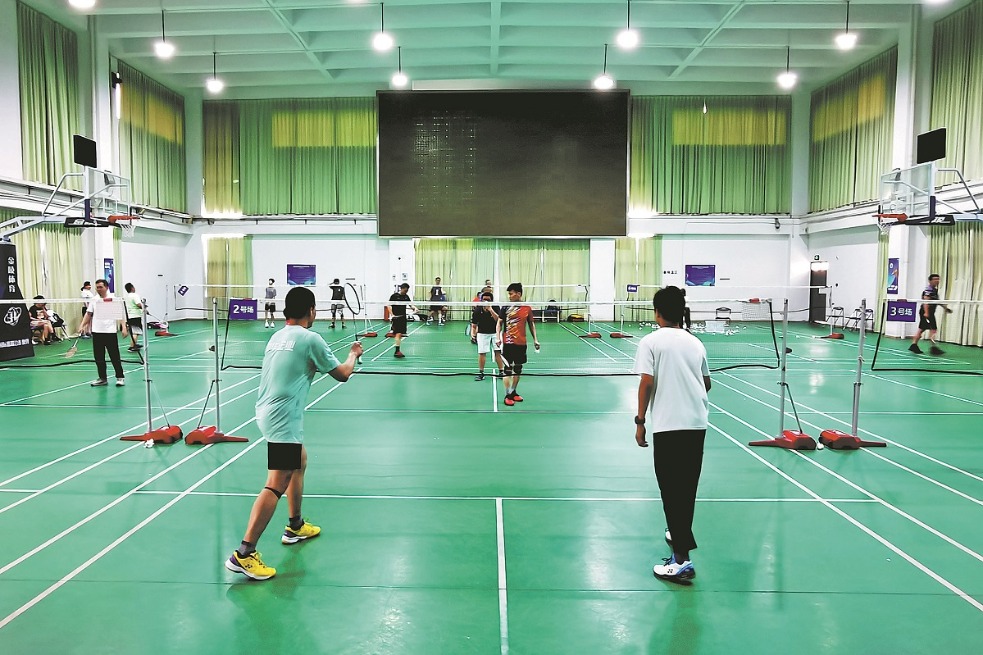New space for ancient place

|

Feng Nai'en, one operator of "The Palace Museum" micro blog, is also an executive at the museum. Zhang Wei / China Daily
|
Palace Museum's new micro blog unravels mysteries of an ancient era
For almost five hundred years, the Forbidden City in Beijing served as the home of emperors and their households, and was also the ceremonial and political center of the Chinese government. The imposing structure is also the largest collection of preserved ancient wooden structures in the world.
Tucked away in the corridors of the Forbidden City is the Palace Museum, which has an extensive collection of artwork and artifacts dating back to the Ming and Qing dynasties.
It used to be told that time stood still in the Forbidden City. To some extent it is true as the structure successfully withstood the ravages of time, nature and disaster.
But things are changing now. Like many of the other famous tourism sites in the world, the Palace Museum, too, is taking advantage of the latest communication tools to keep its name abuzz with tourists.
The museum recently set up a micro blog that allows visitors to make a virtual tour of the surroundings.
Netizens and fans of ancient collections now treat the palace like an old friend who regales them with stories and tales of intrigue, passion and war from a bygone era.
"Gu Gu, today I slept until I felt a little giddy. I want to know, could the emperors of the Qing Dynasty (1644-1911) sleep as long as they liked?" This is one of the many questions that posed by a netizen at the Tencent micro blog, "The Palace Museum", which has around 1.6 million followers.
"No, they were very diligent. They woke up to work very early," "The Palace Museum" answers, adding a sweat emoticon.
From 8:30 am to midnight, "The Palace Museum" answers questions in a professional but lighthearted manner.
The individual who answers the questions is often referred to in messages as "Gu Gu", "Brother Gu", or "Brother Gong" by followers, in a reference to the Forbidden City's Chinese name, Gugong.
"We use micro blogs because we are aware of their power for direct communication," says Feng Nai'en, one of three operators of "The Palace Museum" and director of the Administrative Office of the Palace Museum. "But we didn't expect it to be so popular."
Registered on Jan 1, the micro blog's first two tweets said, "Hello", while the third said Shufang Yard, the residence of a Qing Dynasty princess in a nationally acclaimed television series, was where the royal family enjoyed opera.
The tweet was instantly re-tweeted and commented on by 45 people. In an hour, the number of followers reached 10,000. Five hours later, the number reached 100,000.
People started asking such questions as, "Why are visitors not allowed to go into some places in the palace?" and, "Are all animals not allowed into the palace? What about guide dogs?" and, "Are there really ghosts in the palace at night?"
"What makes the museum lively and special is not only its buildings and collection, but also the stories and anecdotes behind those collections and buildings," Feng says.
"We want to offer knowledge about the museum that people are interested in but is out of their reach."
Feng has two colleagues working with him on the program. One is Chang Lingxing, a public relations officer in his late 20s; the other is the 30-something Da Weijia, chief editor of the museum's website.
"This is not the first time we have used digital technology to promote the museum. As early as 2007, the museum created a group on (social network platform) Douban," Da says.
"Now we want to make the most of micro-blogging, which is fast and effective."
The three work in shifts to post massages, in addition to doing their regular work.
They also tweet about the museum's history, the collections, the buildings and e-shop, and post information about exhibitions, forums, research achievements, and activities. Most importantly, they try their best to make the content funny and knowledge-rich.
Da once read that the ears of the palace's lion statues were down because in the past it was believed the emperor was the son of heaven, so lions were afraid of him and their ears would go down to show their obedience.
Da wondered if it was true.
She examined all the lion statues, and found that not all the statues conformed to what the book said. In front of the Hall of Supreme Harmony, the largest hall within the immense Forbidden City palace complex, a pair of lions has alert ears. Da posted photos she took on the micro blog and was praised by followers.
"The Palace Museum is not just a mysterious building with four closed walls, but an organization with stories from the past and present," Feng says.
"We hope our efforts will help people know more about the museum, no matter whether they visit the museum in the real world or not."
Today's Top News
- Dialogue and cooperation key to keeping Sino-US relationship on the right course
- Xi says dialogue, cooperation only right choice for China, US
- Tariffs take heavy toll on US first and foremost: China Daily editorial
- Washington stands in the way of efforts to end humanitarian disaster in Gaza
- Xi, Trump hold phone talks
- Xizang maintains world-class ecological standards






























